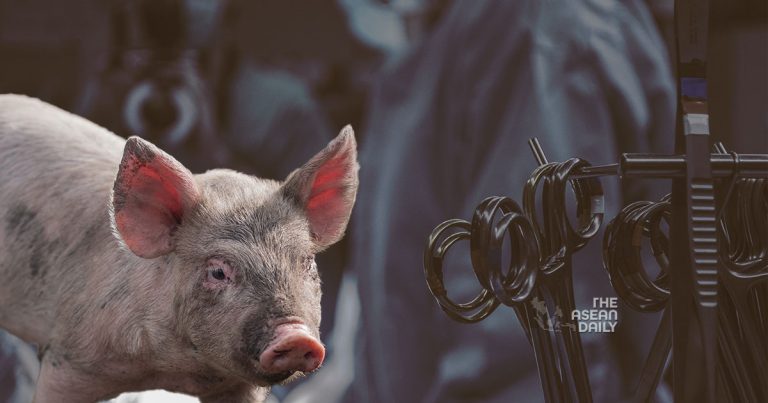17-8-2023 (WASHINGTON) US medical experts achieved a significant milestone in the realm of organ transplantation by successfully sustaining a genetically modified pig kidney within a brain-dead human patient for an unprecedented period of 32 days. This accomplishment stands as a remarkable advancement in the pursuit of addressing the critical organ donation shortage.
The groundbreaking procedure represents the latest in a series of experimental endeavors in the field of cross-species transplants. This progressive research, conducted on bodies specifically donated for scientific purposes, aims to revolutionize the organ transplant landscape.
In the United States, over 103,000 individuals are awaiting organ transplants, with a staggering 88,000 requiring kidney replacements. Dr. Robert Montgomery, the director of the New York University Langone Transplant Institute, conveyed the success of the genetically modified pig kidney transplantation, stating, “We have a genetically edited pig kidney surviving for over a month in a human.” This achievement signals a pivotal moment, instilling greater confidence in the potential for initiating preliminary studies involving living humans.
The visionary Dr. Montgomery led the first-ever transplantation of a genetically modified pig kidney into a human recipient in September 2021, followed by a similar feat in November 2021. Since then, a handful of additional cases have been conducted, albeit with shorter durations ranging from two to three days.
A distinctive feature of this most recent transplant lies in the singular genetic modification introduced to counteract “hyperacute rejection,” a swift immune response that typically transpires moments after the connection of an animal organ to a human circulatory system. By targeting the gene associated with the biomolecule alpha-gal, which is a prime target for human antibodies, the NYU Langone team effectively nullified immediate rejection. This genetic alteration represents a groundbreaking achievement in optimizing cross-species transplantation.
The procedure also involved embedding the pig’s thymus gland within the kidney’s outer layer. The thymus gland plays a pivotal role in educating the immune system. By incorporating this aspect into the transplantation process, the host’s immune cells were educated to recognize the pig’s cells as their own, thus mitigating the possibility of delayed rejection.
In the recent case, the patient’s native kidneys were removed, and a pig kidney was transplanted. The transplanted kidney promptly initiated the production of urine. Monitoring revealed that levels of creatinine, a waste product, remained within optimal ranges, and there was no indication of rejection.
An essential aspect of this accomplishment is the absence of evidence indicating the presence of porcine cytomegalovirus, which can lead to organ failure. The medical team plans to continue vigilant monitoring for an additional month to ensure the sustained success of the procedure.
The success of this landmark endeavor was made possible by the generosity of the family of the 57-year-old male patient, Maurice “Mo” Miller, who tragically passed away in July. His family’s decision to contribute to scientific progress in the face of their loss is a testament to the potential impact of medical research.
This achievement follows a previous groundbreaking pig-to-human transplant involving a heart, carried out at the University of Maryland Medical School in January 2022. However, this patient tragically passed away two months after the procedure due to the presence of porcine cytomegalovirus.
The pigs used in these revolutionary experiments originate from a herd provided by biotech company Revivicor. Approved by the Food and Drug Administration, this herd serves as a meat source for individuals hypersensitive to the alpha-gal molecule, caused by tick bites. The fact that these pigs are bred, rather than cloned, facilitates scalability in the process.
While early cross-species transplant research targeted primates, such as the memorable case of “Baby Fae” in 1984, contemporary efforts are centered on pigs. Pigs’ organ size, rapid growth, substantial litters, and their role as a food source have positioned them as the preferred candidates for human organ donation. This remarkable accomplishment marks a significant stride in bridging the gap between organ demand and supply.




